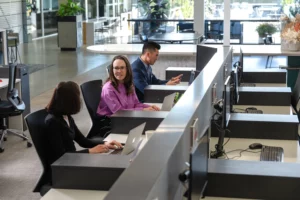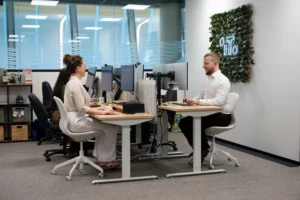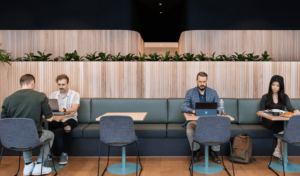
Attracting and Maintaining High-Calibre Staff: Strategies for Businesses
In today’s competitive business landscape, attracting and maintaining high-calibre staff is crucial for the success and growth of any company.
Waterman Blog is a Blog for Entrepreneurs, Freelancers, and Business Owners that is dedicated to providing Australian businesses and professionals with knowledge, business tips and advice, and general news. We hope you find new information that will assist you in expanding your business, impact, and knowledge.

In today’s competitive business landscape, attracting and maintaining high-calibre staff is crucial for the success and growth of any company.

The way we work has undergone a significant transformation in recent years, and with it, the demand for flexible office solutions has surged.
Serviced offices
and traditional commercial office leases are two popular options for businesses looking to secure office space. In this article, we will delve into a data-driven comparison between these two office solutions, exploring the benefits and drawbacks of each to help you make an informed decision.

For thousands of professionals across Australia, coworking has become ubiquitous with a new and innovative way of doing business. What started out as a blip on the corporate radar has quickly evolved as a critical component for business operations nationwide.

Gone are the days when Friday night work drinks or the company PlayStation were drawcards for what employees wanted from being in the
office. Flexibility in remote and workplace arrangements is now one of the highest priorities businesses need to consider in attracting and retaining talent.

Urban flexible workspaces continue to rise as a growing trend as more people discover the benefits of having a flexible work schedule and location. Which is why it’s unsurprising to find the coworking and flexible workspace movement positively impacting the suburban market.

Before the onset of the COVID-19 pandemic, many people looked to the traditional office as the workplace standard: Commuting to and from a central office location to work in a designated cubicle or desk for eight hours a day. Although coworking spaces were already established at the time, their popularity has grown exponentially in the last two years.

After working as an IT project manager for most of his career, Rahi Khondker came to the realisation that there was more to life than climbing the ladder in the relentless corporate world. He wanted to do something more fulfilling outside the four walls of his cubicle.

The importance of engaging within a community while remaining COVID-compliant seems to have faded. How can this be achieved while in lockdown or continuing to work from home.

Did you know that one-third of your life is spent at work? For the average person, that’s around 90,000 hours in their entire lifetime. This means that a large portion of your time is spent in a specific work environment, probably more than the amount of time you relax at home! This begs the question: Does your workplace add fulfillment to your professional life or does it bring you down?

While coworking spaces have become a recent phenomenon, the concept has actually been in practice for decades. In the late 90s, coders, engineers, developers, and programmers in Germany developed “hackerspaces,” a community-oriented place that motivated them to exchange ideas and learn from each other’s skills. The goal wasn’t to learn from one field of study exclusively, but rather to stimulate a collaboration on different areas of design, prototyping, creative problem-solving.

In 2020, when lockdowns hit Australia due to COVID-19, city-based office employees had to adjust to working from home. Although some struggled initially, many people have quickly gotten used to the benefits that working remotely can bring.

At Waterman, we know that every successful business needs to stay agile to stay ahead of the game. As one way to manage employees returning to work, some forward-thinking CBD organisations realised that co-working hubs could provide a great range of benefits.
© 2025 Waterman Workspaces Pty Ltd. All rights reserved. Website Terms, Privacy, Cookies, Accessibility Policies
Please read below the terms of the September Membership Coworking Deal.
Please read below the terms of the Camberwell Membership Offier
$100 per month of free credits for 3 mths
Please read below the terms of the EOFY Coworking Deal.